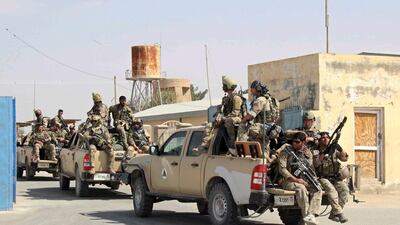The soldiers were determined that the patient must die. Brandishing their weapons in the operating room, they ordered the surgeon to abandon their enemy, stretched out on the table, so they could finish him off. They hadn't put bullets in the man just to have her take them out, they insisted.
The surgeon was unwavering. If the soldiers had done their job properly, she wouldn't have to correct their mistakes. She hadn't interfered in their work and would appreciate it if they returned the courtesy.
My mother was the surgeon and growing up, my brother and I would ask her to tell us stories of her various debates with men with guns as Nigeria careened from coup to countercoup and war in Biafra.
On more than one occasion, she persuaded combatants that if they prevented her from doing her job, she would make an exception to her strict neutrality as a doctor and foreigner, and refuse to operate on them or their compatriots.
She had been lucky, this slight woman who had travelled to Nigeria from South Asia to stand on a soapbox so she could reach the operating table. She had been lucky because she could talk to the combatants face to face. More than once, they even exchanged jokes in pidgin, she and the soldiers who towered over her.
And we were lucky, we kids who delighted in hearing these stories at the dinner table so we could boast of having the coolest mother in the world.
If only they were as lucky, the 30 personnel and patients killed on October 3 in the Medicins Sans Frontieres (MSF) hospital in Kunduz, Afghanistan.
If only the children of those doctors and nurses could hear their parents' war stories over family meals.
There could be no face-to-face with the pilots of distant warplanes and no chance to interrogate the basis of their actions, be it intelligence or conjecture.
In the early morning sky over Kunduz, it seems a C-130 gunship continued its repeated attacks on the hospital long after MSF had raised the alarm to US and Afghan authorities. Never mind that MSF routinely shares the coordinates of its facilities – as it had in Kunduz.
The humanitarian professionals of MSF and the people they go into harm's way to save and serve deserve a thorough, transparent and impartial investigation.
This should go beyond the standard, opaque in-house interviews and incident reports issued by the very institutions under investigation.
In particular, those involved in the Kunduz attack should agree to turn over inquiries to the International Humanitarian Fact-Finding Commission, the only permanent body set up specifically to investigate alleged violations of international humanitarian law.
This would help restore trust and signal commitment to at least the very minimum of safety for humanitarian workers who stay in places so dangerous that the United Nations and other aid groups have left.
The children of those who died in Kunduz – my big sisters and brothers, for they are enduring a cruel loss that I was spared – deserve at least this: diligent, verifiable answers. The story to which they are entitled is not a piece of dining room entertainment but a crucial accounting they need in order to make some kind of sense of what happened to their parents and what haunts them now in nightmares and sorrow, anxiety and longing.
Abid Aslam has worked for several UN agencies and news organisations. He advises aid groups

